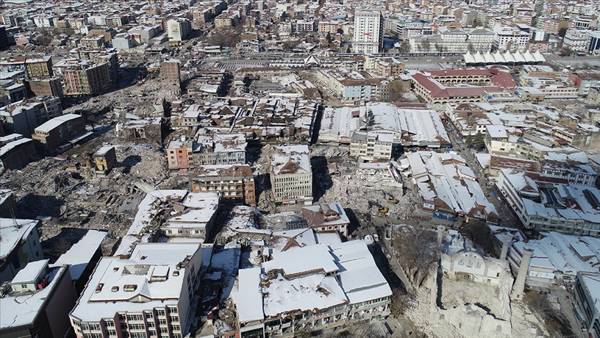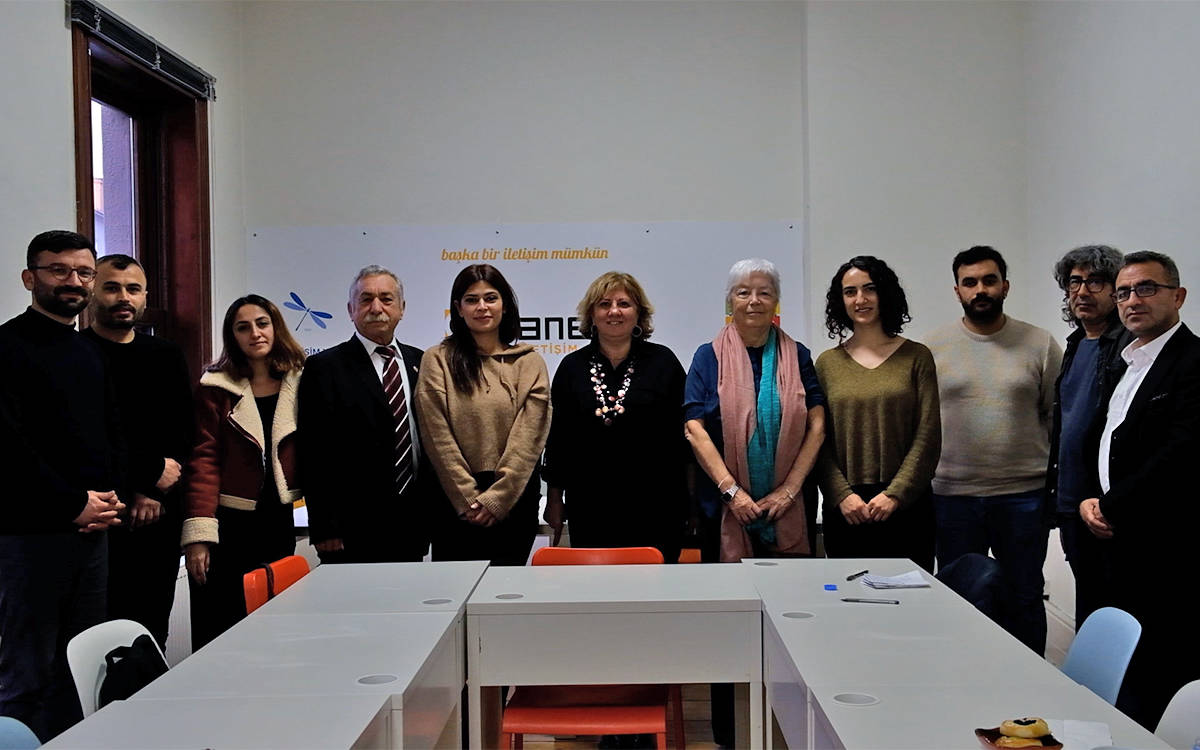Workshops were held on December 11-14 as part of the "Rights-Based Journalism During Election Periods" project, organized in collaboration with IPS Communication Foundation/bianet, Reporters Without Borders (RSF), and Oslo Metropolitan University (Journalism and Media International Centre, JMIC).
A total of 11 journalists attended the workshops held at Workshop BİA, including representatives from eight cities affected by the February 6 earthquakes and from Mersin and Van, cities where earthquake victims have migrated the most.
The "Rights-Based Journalism During Election Periods" project focuses on both strengthening local journalism and supporting journalists affected by earthquakes.
Together with the participants, we will produce news articles examining the government's one-year "reconstruction" promises from a human rights perspective ahead of the local elections on March 31, 2024. Journalists involved in the project will prepare a research dossier based on questions such as which sections of the society are those whose needs are not being met, what ongoing needs exist, and what problems have occurred during the process. We will publish this dossier on bianet. In summary, we aim to combine a focus on human rights with earthquake journalism, aiming to both raise awareness and uncover issues through the devastation caused by the earthquake.
First day
The event commenced with an opening speech by Nadire Mater, Chairperson of the IPS Communication Foundation Board.
Describing the gathering as a "meeting for remembrance, reconsideration, and sharing," Mater proposed a shift in journalism discussions towards talking less about media ownership structures, organizational issues, the constant introduction of new restrictions by authorities, the threats of death, imprisonment, and unemployment faced by journalists, but more about "the journalist".
Posing the question "How much does self-censorship, which renders censorship unnecessary, besiege us journalists?" Mater expressed a desire to discuss how self-censorship grows within journalists.
Mater also emphasized the importance of 'rights-based journalism' practices in earthquake-stricken areas ahead of the local elections.
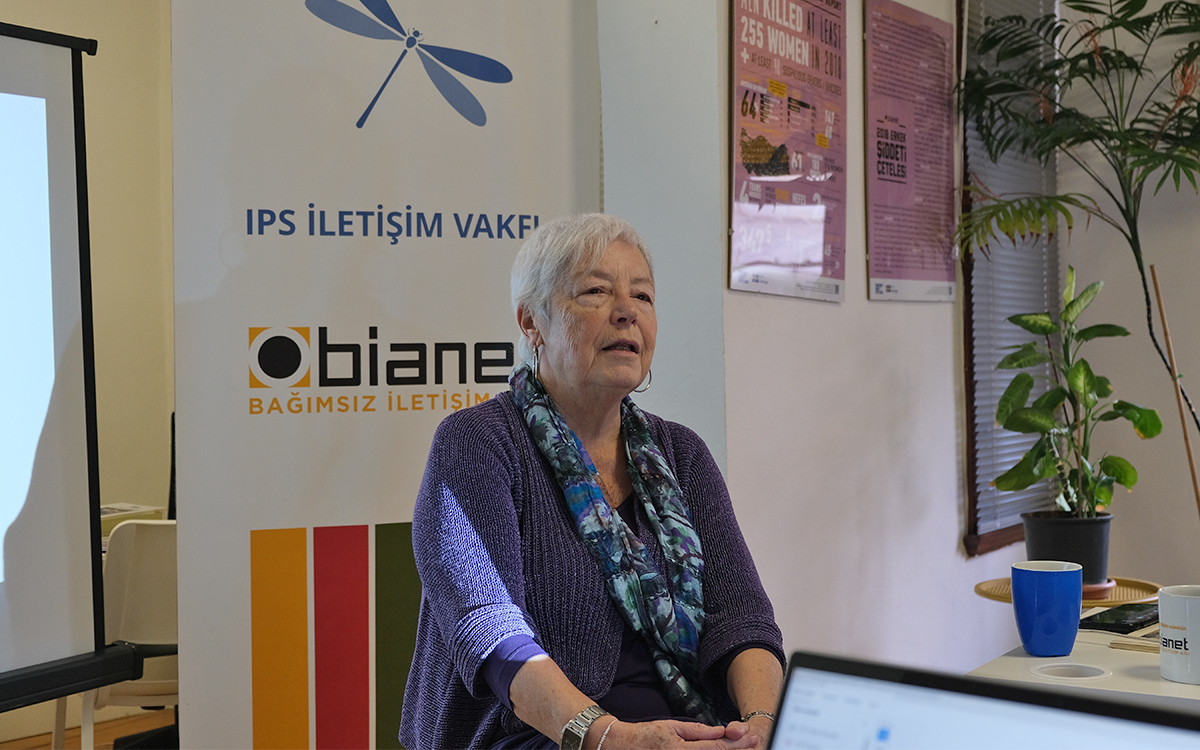
The introduction of the program was conducted by Ege Öztokat, Project Editor at bianet, and Dr. Sinem Aydınlı, Research Coordinator at Workshop BİA.
Following the speeches, Prof. Dr. Nilgün Toker delivered an online presentation titled "Outlook for 2023: Readings on Turkey."
Murat İnceoğlu, Editor-in-Chief of bianet, spoke at the workshop titled "Basic Journalism Reminders and Introduction to Rights-Based Journalism."
Stressing the importance of local journalism in earthquake-affected areas, İnceoğlu remarked, "We know what is happening in the earthquake zone, we listen to colleagues who narrate it, but because we haven't experienced it like you have, we cannot establish the same sensitivity."
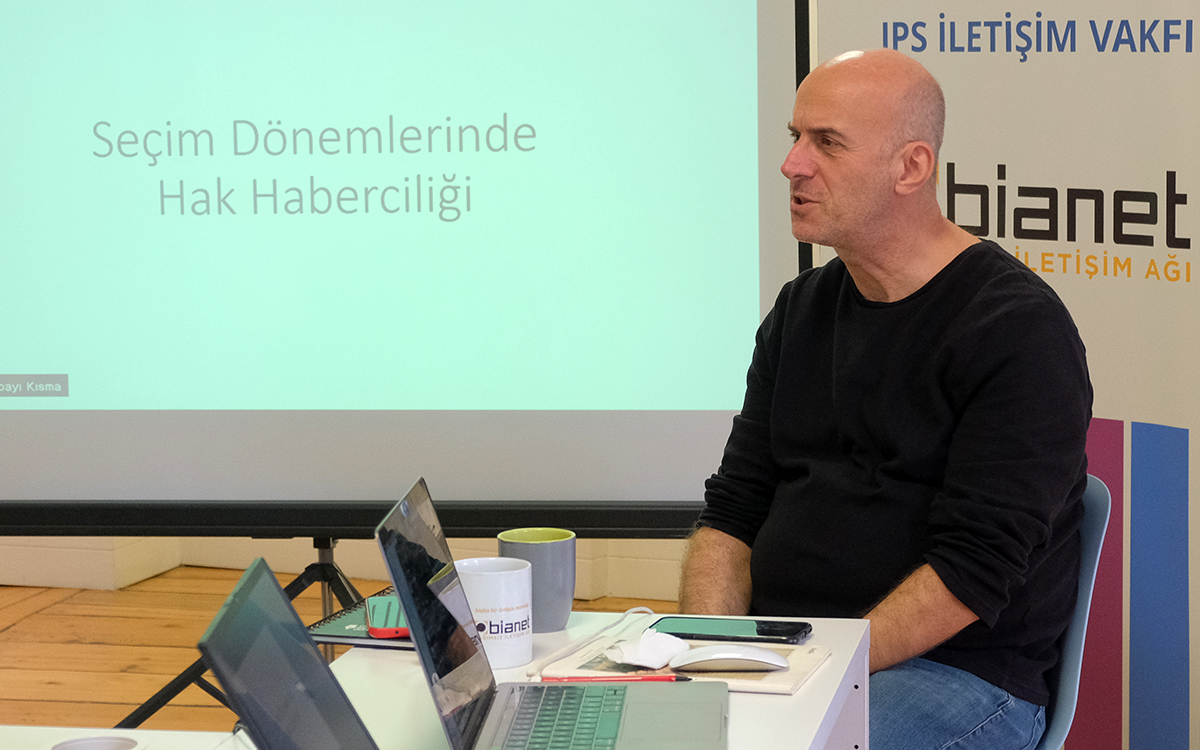
Evrim Kepenek, Editor of Women's and LGBTI+ News at bianet, presented the workshop titled "Gender-Focused Journalism."
Kepenek cautioned about the considerations to be made when producing gender-focused news, highlighting the importance of not re-victimizing the persons.
"Journalists engaging in gender-focused journalism should constantly update themselves and maintain close contact with the feminist and LGBTI+ movements," stated Kepenek, while also sharing guidebooks prepared by professional organizations and bianet with the participants.
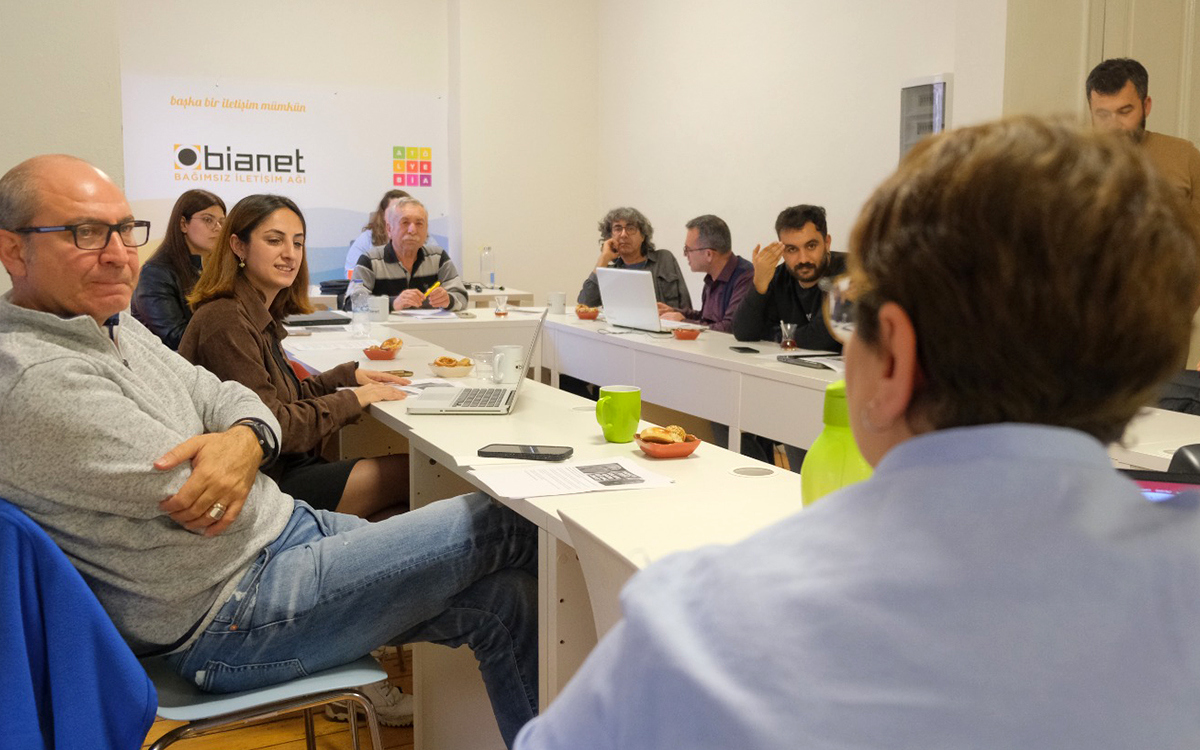
Second day
Pınar İlkiz, Co-Founder and Communication Development Director of Pikan Agency, spoke at the workshop titled "Digital Tools for Journalists."
During his workshop titled "Video Techniques," bianet correspondent Ali Dinç discussed video shooting techniques, video editing, points to consider in video news, and features of editing programs.
In the final session moderated by Nadire Mater, the discussion focused on "Right to Housing and the New Transformation Law," with the participation of Assoc. Prof. Dr. Pınar Giritlioğlu, President of the Chamber of City Planners İstanbul Branch.
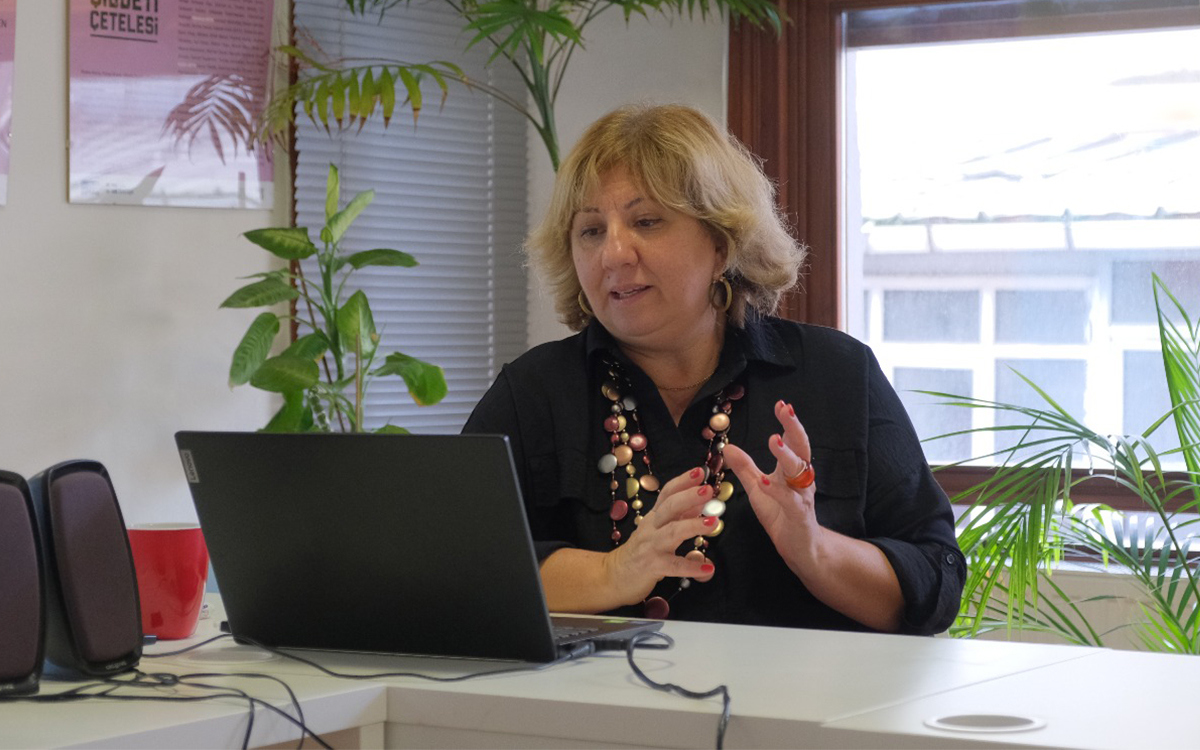
Third day
The third day of the program began with the workshop titled "Kurdish Rights-Based Journalism," led by bianet Kurdish editors Ferid Demirel and Aren Yıldırım. During the workshop, examples were provided from media outlets in Turkey that operate in languages other than Turkish and those that offer bilingual publications.
Demirel and Yıldırım emphasized that bianet Kurdish extends bianet's rights-based journalism to Kurdish readers. They mentioned that they organize workshops and produce resources for journalists interested in Kurdish journalism.
During the next session, a discussion was held on "Media and Refugee Rights."
In the workshop led by Vecih Cuzdan, Managing Editor of bianet, presentations were made on terminology, language used in news, and writing style. Discussions also focused on representations of refugees in local media.
In the workshop titled "Children's Rights and Education," bianet editor Ruken Tuncel discussed the considerations for child-focused journalism. Tuncel cautioned against using language in news reports from the earthquake zone that would perpetuate the perception of children as constantly 'weak, helpless, and vulnerable' emphasizing the importance of not exposing children to violence and abuse.
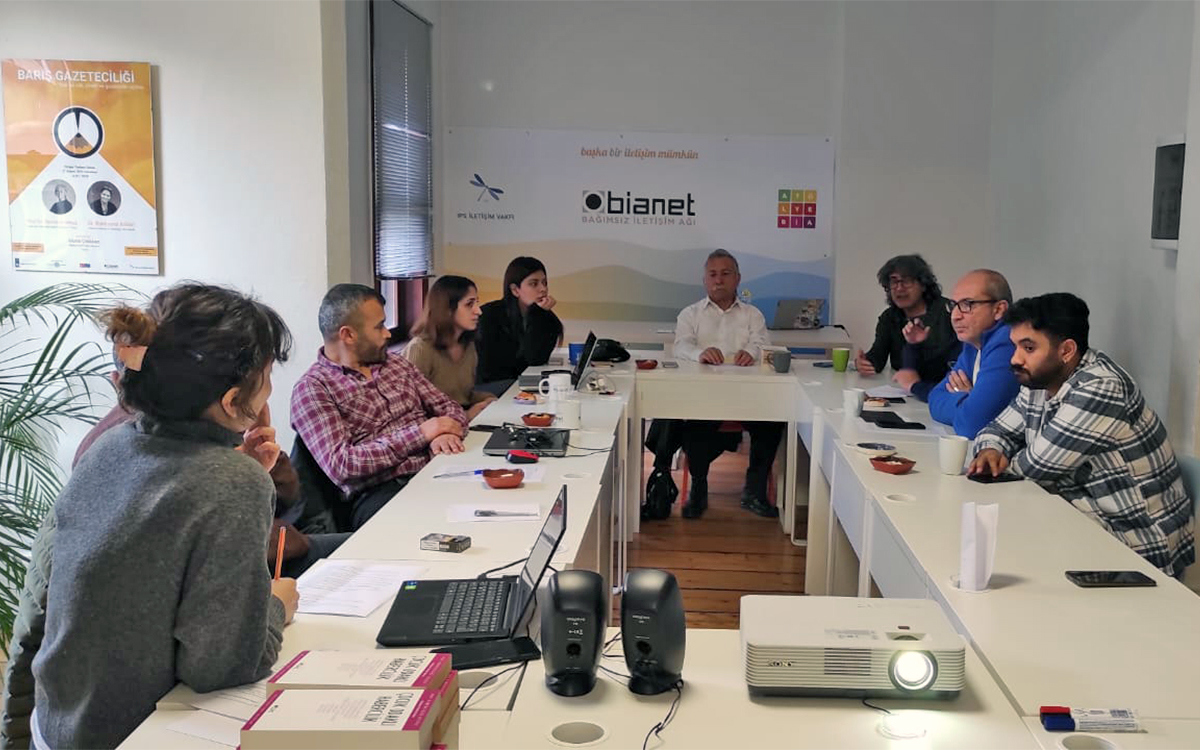
In the final session, bianet Multimedia Correspondent Hikmet Adal presented the workshop titled "Judicial Journalism."
In his presentation titled "Courtroom 101," Adal explained the judicial system in Turkey and shared judicial statistics, including discussions on trials involving journalists. Adal, together with workshop participants, examined the indictment of bianet editor Ayça Söylemez, filed by Deputy Minister of Justice Akın Gürlek.
The Civil Society in the Penal System Association (CİSST), as a guest at the workshop, provided insights into prisoner rights.
Fourth day
On the final day of the program, bianet correspondent Tuğçe Yılmaz discussed what to consider when writing news in the workshop titled "Environment and Health Journalism." Yılmaz highlighted bianet's language policy in news writing and provided examples from various news articles.
In the second part of the workshop, Yılmaz addressed the importance of climate and environmental journalism as we approach local elections and discussed the issue of 'climate crisis denial' prominent in some political parties. The workshop also covered the asbestos issue in earthquake-affected areas.
In the "Newsroom" event, attended by bianet Editor-in-Chief Murat İnceoğlu and Managing Editor Vecih Cuzdan, discussions revolved around research dossiers and news articles to be produced as part of the project.
In the final session, Erol Önderoğlu, Media Monitoring Reporter at bianet and RSF Turkey Representative, delivered a presentation titled "Freedom of Expression and Journalists' Rights in Turkey."
The program concluded with evaluations and sharing of experiences.
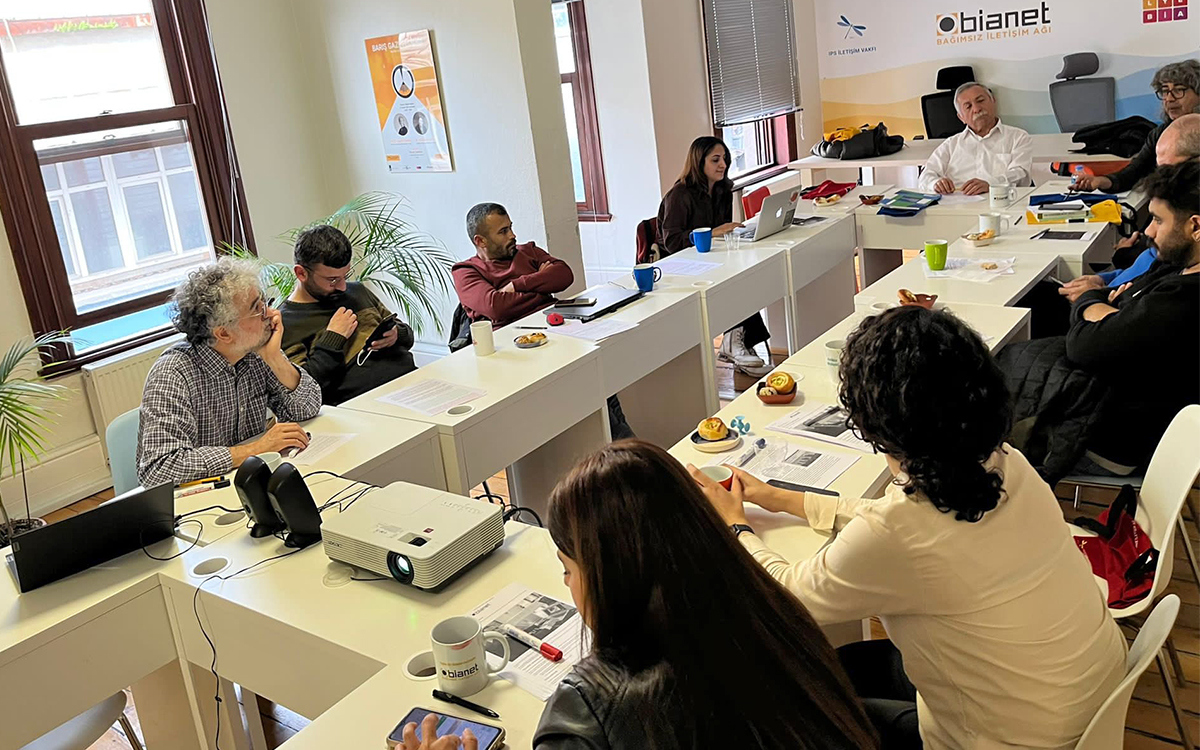
(VC/PE)




